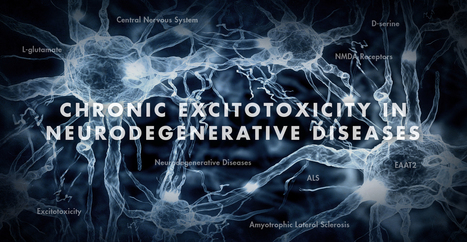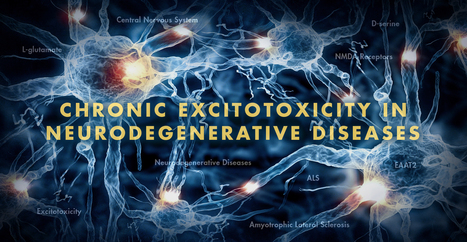When compared to other central nervous system (CNS) health issues, chronic neurodegenerative diseases can be far more complicated. Foremostly, because the compromised mitochondrial function has been demonstrated in many neurodegenerative diseases, the resulting problems in energy sources are not as severe as the energy collapse in ischemic stroke. Therefore, if excitotoxicity contributes to neurodegeneration, a different time of chronic excitotoxicity needs to be assumed. In the following article, we will outline what is known about the pathways that may cause excitotoxicity in neurodegenerative diseases. We will specifically discuss that in amyotrophic lateral sclerosis (ALS), Alzheimer’s disease (AD) and Huntington’s disease (HD) as fundamental examples with sufficiently validated animal models in research studies.
Research and publish the best content.
Get Started for FREE
Sign up with Facebook Sign up with X
I don't have a Facebook or a X account
Already have an account: Login
Neuropathy is a medical term used to characterize damage or injury to the nerves, generally referring to the peripheral nerves as opposed to the central nervous system. The complications which follow neuropathy depends largely on the type of nerves that are affected. According to Dr. Alex Jimenez, different neuropathies can cause numbness and tingling sensations, increased pain or the loss of ability to feel pain, muscle weakness with twitching and cramps, and even dizziness and/or loss of control over the bladder function. The following articles take a closer approach to describe several neuropathies, their causes, whether known or unknown and possible solutions for individuals to feel relief from their neuropathy symptoms. For more information, please feel free to contact us at (915) 850-0900 or text to call Dr. Jimenez personally at (915) 540-8444. http://bit.ly/chiropractorNeuropathies. Clinical Testimonies: http://bit.ly/elpasoneuropathy Book Appointment Today: https://bit.ly/Book-Online-Appointment
Curated by
Dr. Alex Jimenez
 Your new post is loading... Your new post is loading...
 Your new post is loading... Your new post is loading...
|
|












In many research studies, evidence and outcome measures have demonstrated that glutamate dysregulation and excitotoxicity in many neurological diseases, including AD, HD, and ALS, ultimately lead to neurodegeneration and a variery of symptoms associated with the health issues. The purpose of the following article is to discuss and demonstrate the role that glutamate dysregulation and excitotoxicity plays on neurodegenerative diseases. The mechanisms for excitotoxicity are different for every health issue. For more information, please feel free to ask Dr. Alex Jimenez or contact us at (915) 850-0900.